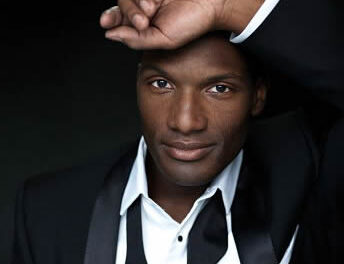A theater, like a symphony, needs to take on intellectually challenging projects, as much for its audiences as itself, if it exists truly for the edification of the community. Triad Stage’s latest production, Oleanna, written by David Mamet, is one of those productions.
There is no “easy button” for Oleanna. What you expect to happen doesn’t happen. What you never expect to happen happens. That makes for a very off-balance, taken-aback audience, which was no doubt Mamet’s — and Triad Stage director Preston Lane’s — intention.
For this production, Triad Stage is transformed to theater-in-the-round, and rightly so, proving once more the flexibility of this little theater and the minds behind it. This transition is accomplished with very little — but very accurate — set design, one act, only two characters, and a script that is so staccato and disconnected in places that you wonder how in the world an actor can master it.
But disconnect is what this play is about. Worlds collide when college professor John, played by Lee Spencer, tries to take his failing student Carol, UNCG MFA grad Ginny Myers Lee, under his wing. What has obviously worked for John in the past, i.e., thinly veiled condescension, a haphazard advising style, and arrogance nonpareil, this time hits the wall.
Spencer has played John before, at An Appalachian Summer Festival, and perhaps that’s one reason why he seems so comfortable in this uncomfortable role. Simply put, he looks the part. There’s something in his stature, his hauteur, that absolutely screams college professor; and it’s hard to imagine anyone more perfect for this role.
Even though John interacts only with Carol onstage, there are more characters he has to deal with on the phone. Playing opposite a telephone is tricky, but can be so effective when mastered (remember Bob Newhart), and Spencer brings the little black box to life. In a modern production (Oleanna was written in 1992), John would probably be talking into a cell phone, but the older desktop phone is apropos for tethering our prof to his desk and the intellectual prison he has built for himself.
Then there’s the seemingly innocent Carol. Lee as Carol pulls off the facial and physical harmlessness of a college student lost in space who emerges as Grecian sculpture: cold, hard, and difficult to topple. Indeed, all that’s missing is a Greek chorus, which, thanks to sound designer David E. Smith, seems present as well.
When their role reversal is complete, with Carol physically behind the desk lecturing a disheveled John, the play seems to have done its 180, a fait accompli. But, as they say, it ain’t over ‘til it’s over.
While Mamet (author of Glengarry Glen Ross, now playing at Deep Dish Theater Company in Chapel Hill) has been accused of writing the play merely as a commentary on Political Correctness, it’s the gray area that’s perhaps the most interesting in this (mostly) cerebral analysis of power.
Director Preston Lane wrings every drop of tension out of two people trying to plumb each other’s psychological depths. One wonders: should there be more obvious mounting anger on stage or is it bridled in order to transfer it to the audience? If it’s the latter, it works.
There are many more unanswered questions: Why would this student return for more of the professor’s abuse? Was he set up from the beginning? And who, pray tell, is this “group” she speaks of as her never-seen advisors?
We’re left to figure all that out ourselves; and, by the way, good luck with that. But half the fun, if there is any, is hearing the gasps and observing audience members unable to curtail their whispers as their eyes are riveted on the play. Most telling, in a recent performance, were the post-play comments, one of which, no doubt uttered by a college professor, summed it all up perfectly: “I’m retiring tomorrow.”
Oleanna continues at Triad Stage through November 8. See our theatre calendar for details.











